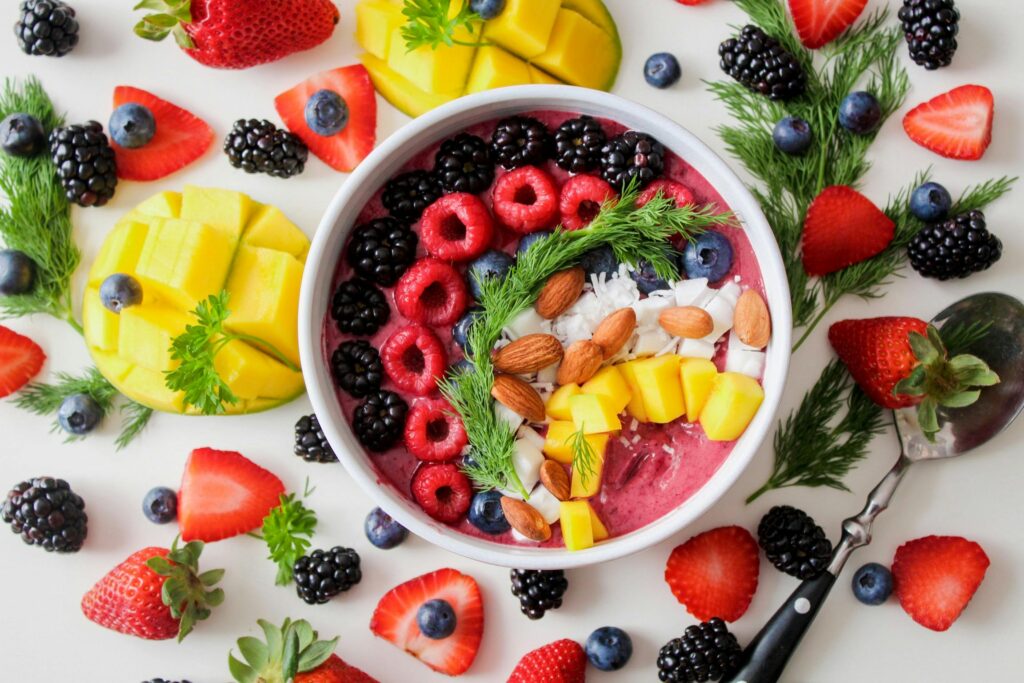
Holistic Nutrition: Food as Medicine
How to Nourish, Heal, and Thrive Naturally
In a world filled with fad diets and quick fixes, holistic nutrition offers something timeless: the idea that food is not just fuel—it’s medicine. When we view food through a holistic lens, we shift from counting calories to nourishing the whole body, mind, and spirit.
Whether you’re managing chronic symptoms, seeking more energy, or simply wanting to feel better in your body, the path to wellness often starts with what’s on your plate.
What Is Holistic Nutrition?
Holistic nutrition is a whole-body approach to eating that considers how food impacts every aspect of your well-being—physical, mental, emotional, and even spiritual.
Rather than focusing on restriction or rigid rules, holistic nutrition honors:
- Whole, natural foods
- Individual body wisdom
- The root causes of imbalance
- The healing power of nutrients, herbs, and mindful eating
In short, it’s about using food to support balance and vitality, not just to manage weight or symptoms.
Core Principles of Holistic Nutrition
🌿 1. Food Should Heal, Not Harm
Choose foods that are alive, nourishing, and as close to nature as possible. Processed and artificial ingredients can disrupt digestion, hormones, and energy levels.
Think: Whole vegetables, fruits, nuts, seeds, clean proteins, herbs, and healing fats.
🧠 2. Every Body Is Different
What heals one person may not work for another. Holistic nutrition respects your bio-individuality, including your constitution, ancestry, environment, and current health challenges.
Example: One person may thrive on warm grounding foods, while another needs fresh raw greens for energy.
💛 3. Digestion Is the Foundation
It’s not just what you eat—it’s what your body can absorb. A healthy gut supports immunity, mood, skin, and detoxification.
Support your digestion with:
- Probiotic-rich foods (like sauerkraut or kefir)
- Herbal teas (ginger, peppermint, fennel)
- Eating slowly and mindfully
🔍 4. Address the Root Cause
Rather than masking symptoms, holistic nutrition asks why they’re happening—then uses targeted foods and herbs to restore balance.
Example: Instead of suppressing acid reflux with antacids, we explore if you’re low in stomach acid or eating trigger foods.
🌱 5. Food Is Energy, Emotion, and Connection
Holistic eating includes how food makes you feel, where it comes from, how it’s prepared, and the intention behind it. Emotional and cultural relationships with food are honored and explored with compassion.
Healing Foods in Holistic Nutrition
Below are some food-medicine staples commonly used in holistic healing:
| Food/Herb | Healing Properties |
|---|---|
| Garlic | Antiviral, antibacterial, supports cardiovascular health |
| Bone Broth | Gut-healing, mineral-rich, supports joints and skin |
| Turmeric | Anti-inflammatory, antioxidant, supports liver and brain |
| Leafy Greens | Detoxifying, mineral-rich, alkalizing |
| Chia & Flax Seeds | Omega-3s, fiber, hormone balancing |
| Fermented Foods | Gut health, immunity, mood support |
| Berries | High in antioxidants, support brain and skin health |
| Ginger | Aids digestion, anti-inflammatory, soothes nausea |
Holistic Nutrition in Practice
🍽️ Simple Daily Practices:
- Eat the rainbow (diverse colors = diverse nutrients)
- Focus on seasonal, local, organic produce when possible
- Stay hydrated with clean water and herbal teas
- Avoid eating in a rush or while distracted
- Incorporate spices and herbs for taste and therapeutic benefit
💡 Listen to Your Body:
- Are you bloated after eating a certain food?
- Do you feel energized or sluggish after meals?
- Are you eating out of hunger—or habit, boredom, or emotion?
Tuning into your body’s signals helps you create a personal nutrition plan that’s flexible and healing.
Common Conditions Supported by Holistic Nutrition
- Digestive issues (IBS, reflux, bloating)
- Hormonal imbalances (PMS, thyroid, menopause)
- Skin conditions (acne, eczema, rosacea)
- Anxiety, fatigue, and brain fog
- Blood sugar imbalance and cravings
- Autoimmune support and inflammation reduction
Holistic Supplements (When Needed)
Whole foods come first, but sometimes supplements provide an extra layer of support:
- Magnesium – for stress, sleep, muscle cramps
- Vitamin D3 + K2 – for mood, bone health, and immunity
- Probiotics – for gut flora balance
- Omega-3s (EPA/DHA) – for brain, skin, and joint health
- Adaptogenic herbs (ashwagandha, maca, rhodiola) – for stress resilience
Always choose high-quality, third-party-tested supplements, and consult a practitioner for guidance.
Final Thoughts: Food Is Medicine, but Also Joy
Holistic nutrition isn’t about perfection—it’s about nourishment. It’s about reconnecting with your food, your body, and the earth. It’s about choosing what feels good long-term, not just what looks good on a label.
Whether you’re blending a smoothie, simmering soup, or sipping tea—each meal is a chance to honor your body and your healing.
Start with one small change: maybe that’s a nourishing breakfast, more water, or swapping your afternoon snack for a handful of walnuts and blueberries. Over time, small shifts lead to big healing.